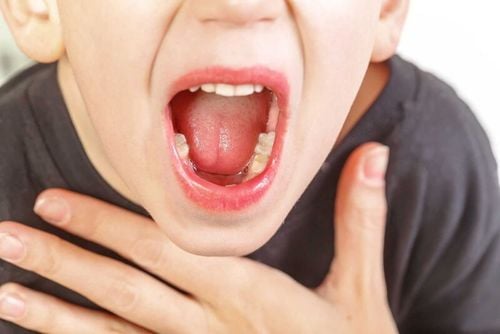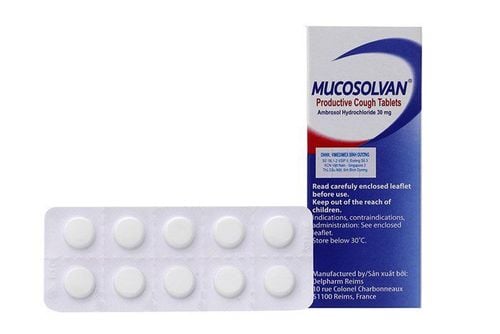Children who have a fever from mild illnesses need to be thoroughly examined by a doctor and receive proper care and nutrition. The condition of fatigue and loss of appetite after a fever can lead to weight loss and even malnutrition. At this point, the child's diet should be adjusted, both in terms of the quality of food and the timing of meals.
1. Causes of Fatigue and Loss of Appetite in Children After Fever or Minor Illness
According to pediatric experts, illnesses can affect both the digestive system and appetite regulation in children. When a child is sick, their body uses a lot of energy to fight the illness, which leads to fatigue. Even after the child recovers, their overall health may not return to normal right away, and this ongoing tiredness, combined with low energy reserves, can cause a loss of appetite.
Moreover, medications such as antibiotics, which are commonly used to treat infections, can disrupt the balance of beneficial bacteria in the gut. This imbalance can lead to digestive issues, making it harder for the body to absorb nutrients properly. As a result, the child may feel less hungry and more fatigued.
After an illness, the child’s immune system may still be weakened. This, combined with a decreased sense of taste and fatigue, can lead to further disinterest in food.
If these issues are not addressed, they can create a negative cycle: Insufficient nutrition leads to weakness and vulnerability to future illnesses and this can cause a repeat of fatigue and loss of appetite, which prolongs the cycle. Over time, this cycle can result in malnutrition, affecting both physical and mental development.
Therefore, it is important for parents to seek solutions that can improve the child’s appetite and energy levels after recovery to break this cycle.
2. Some Tips for Caring for a Child Who Has Lost Appetite After Illness
When taking care of a child who is tired and has lost their appetite after recovering from an illness, the first thing parents need to consider is the child’s food preferences and respect for their choices. Parents should avoid the tendency to force the child to eat a specific food in an attempt to make them eat more. Forcing food can cause negative associations with mealtime and worsen the loss of appetite.
After an illness, the child’s body needs time to fully recover, and the most important aspect of recovery is the restoration of taste. Typically, it takes about 1 to 2 weeks after an illness for children to regain their interest in food. During this period, many children may gradually start eating more as they recover.
What parents should focus on during this recovery phase is maintaining a consistent eating routine. Offer meals that align with the child’s preferences but ensure they are still eating regularly and on time. This approach helps the child gradually return to a healthy eating pattern without feeling pressured.

After an illness, a child's digestive system is often still weak and not fully stable. Therefore, parents should prioritize feeding their child soft or liquid-based foods. To avoid the cycle of fatigue and loss of appetite after a fever, it's important for parents to prepare meals that include all essential nutrients, such as proteins, vitamins, and minerals from foods like meat, eggs, milk, vegetables, fresh fruits, and fruit juices. It's also crucial to limit foods high in fats, sugars, and sugary drinks.
To prevent malnutrition and loss of appetite, parents should aim to add two extra meals per week for two consecutive weeks. If the child experienced prolonged diarrhea, an additional meal every day should be added for at least a month.
Since the child’s body is still recovering and may not be ready for large meals, parents should avoid pressuring the child to eat too much at once. Instead, break meals into smaller portions throughout the day, offering 6-7 meals daily. As the child’s health improves, the texture and portion size of food can gradually increase, eventually returning to a normal diet.
Nutrition experts recommend supplementing the child's diet with digestive enzymes, probiotics, and micronutrients such as vitamin B1, lysine, and zinc, which can help stimulate appetite. Strengthening the digestive system allows for better food intake and absorption of nutrients, which in turn improves the child’s appetite and energy levels. A healthy digestive system also boosts the child’s immunity, aiding in faster recovery and better growth in the future.

3. Signs that Your Child Needs to See a Doctor Immediately
Children who feel fatigued and lose their appetite after illness are at a higher risk of relapse. Therefore, parents should pay attention to the following signs and take their child to the hospital as soon as possible:
Runny Nose or Nasal Congestion: If your child experiences a lot of nasal discharge, it's important to visit a doctor. A runny nose can be a sign of upper respiratory infections or throat inflammation. It could also indicate a middle ear infection, which is common but often detected late, potentially causing serious complications such as permanent hearing loss or meningitis.
Unusual Crying: While fatigue and loss of appetite are common after an illness, if your child suddenly cries uncontrollably and can't be consoled, or if they cry weakly, it may indicate a relapse, and they should be examined immediately.
Refusing to Eat or Drink: After an illness, a decrease in appetite is normal. However, if your child refuses to eat or drink completely, it may be a dangerous sign, and medical intervention is needed.
In addition, parents can help by supplementing essential micronutrients for children who are fatigued and lack appetite after fever, such as zinc, selenium, chromium, vitamin B1, B6, ginger, and acerola (vitamin C). These nutrients can improve taste perception, increase appetite, support proper growth in height and weight, and enhance the immune system to reduce frequent illnesses and digestive issues.
Experts also recommend that parents remain calm and patient when supplementing nutrients to their child, whether through diet or supplements. It is important to choose natural, easily absorbable supplements and avoid using too many types or frequently changing the supplements. During this period, the role of bioavailable zinc is critical. Parents should make sure to provide zinc at the appropriate times to prevent zinc deficiency, which can affect their child's overall development.













